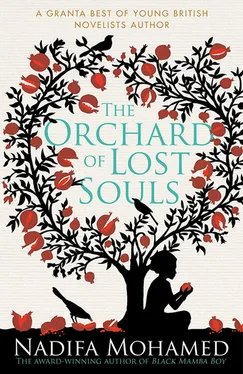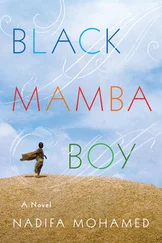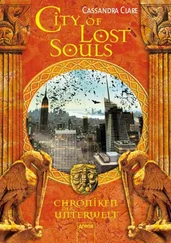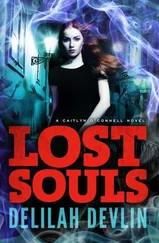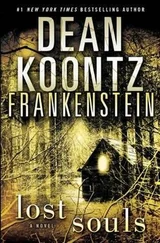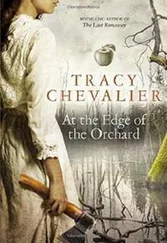On her way to the suuq she often passes children tied by the feet to a barrel or stake outside their home. They stand for hours as punishment for some misdemeanour, staring at her with absent eyes, rubbing the places where they have been whipped or beaten. Everyone is angry — even the sky is grey and motionless; there doesn’t seem to be space for anything but silence and obedience. A new checkpoint is set up at the top of the road and she recognises some of the soldiers from the night visits; they let her through easily while others are stopped and searched. The market is bare and each item is sold at a new, higher price every time she goes there. Many of the traders have disappeared altogether and there are large dark spaces where their stalls used to be. The animal seller has departed along with his tortoise and antelope.
Deqo feels herself retreating into the past. Memories of Anab alive are eaten up by images of her dead, the quiet penetrated by her cries, the heat and then the cold of her skin as the cholera emptied her, now washing over Deqo in waves. What had made the life seep out of her body but not Deqo’s? Had she just wanted to return to her mother enough to leave her little doll body behind and vanish from the earth?
Carrying a string bag of papayas and oranges, Deqo opens the door and sees a wide pink suitcase in the hallway. The door to Nasra’s room is ajar and she peeks in. The floor is covered with clothes and shoes and Nasra picks through them in a panic and stuffs them into a shoulder bag.
Deqo continues to the kitchen before Nasra can shout at her. Malab scuttles excitedly beneath her feet, pecking at her bare toes; she is almost fully grown and her sharp beak stings. Deqo pushes the hen away and begins to peel an orange when Nasra calls her name.
The old man with the sunglasses is smoking behind the door while Nasra stands in the middle of the room, dressed in black and wearing a headscarf. She holds her arms out and gestures for Deqo to come closer.
‘Little one, I have to leave for a while. I need to go to Ethiopia to find a new job, but you won’t be alone, Mustafa is here to look after you. You have to do what he says, OK? He will keep you safe.’
‘Can’t I come with you?’ She reaches out.
Nasra pushes her hands away. ‘No, that would be too much trouble for me. You stay, you can take my room, you can have all of my things while I am gone.’ Her eyes don’t meet Deqo’s but flit around from one corner to another, and her hands tremble slightly as she throws garments from the bed towards her wardrobe. ‘You’ll be fine, Deqo. Mustafa is a good man,’ she says, but her voice cracks unconvincingly.
She watches mutely as Nasra wanders the room, stuffing documents and random belongings into her handbag: red nail varnish, tweezers, comb.
A car horn sounds outside the bungalow.
‘But Nasra. .’
‘But nothing! I have to go, stop nagging me.’ She yanks her shawl over her head and rushes to the hall, dragging the heavy suitcase with both hands she reaches the front door and slams it shut behind her.
Deqo’s attention turns to Mustafa. He raises an eyebrow at her. ‘Let her go, what do you need her for?’
‘When will she come back?’ Deqo says, holding back her tears.
‘Come sit down with me.’ He stubs out his cigarette on a dirty dish, puts an arm around her shoulder and leads her to the bed. ‘You’ve grown since the last time I saw you. That’s the thing about little girls, you change every day.’
Deqo shrugs his arm away but he grabs the back of her dress and drags her to sit. ‘Come on now, don’t be like that. We can start off in a good way or you can thrash around and make it worse than it needs to be.’
‘I don’t want you! Get off me!’ she cries, twisting away from him.
‘Deqo!’
She bristles at the sound of her name in his mouth.
‘Watch her leave if you want.’ He points to the window with one hand while still holding her dress in the other.
Deqo clambers over the bed and catches a flash of Nasra darting from the boot of the white vehicle to the passenger door. She disappears behind the tinted glass, the engine revs and with a blast of saxophones and drums from the stereo she is gone.
Mustafa lets go of her and leans back on his arms. ‘I will take better care of you than she ever did.’
Deqo cups her face in her hands and tears flow onto her palms. She feels her strength seeping out of her and into the soft, rumpled bed. Mustafa’s presence encompasses her; his breath, his sprawling flesh, his silent menace.
She takes her hands away from her eyes and checks the distance to the door. Her legs are folded under her while his dangle over the side of the bed.
‘How much did Nasra tell you about what she does?’ he asks, scratching his stubble.
Deqo shakes her head but doesn’t reply.
‘Don’t look like your world’s caved in, good girls like you are usually the most popular, you’ll make a fine living.’
Deqo bolts for the door before he has finished speaking but he grabs her ankle and wrestles her to the floor.
As she screams he covers her mouth with his hand; his fingers taste of tobacco and ghee. Deqo bites down on them until she tastes blood, but he rips his hand away and punches her mouth.
‘China! Stalin!’ she cries.
‘They won’t help you!’ he sneers.
He pulls her skirt up; she is not wearing knickers because she had washed the two pairs that she owns in the morning.
She sees a black stiletto on the floor and reaches for it while he is trying to prise open her legs. He doesn’t see it coming as she forces the heel into his eye. He is thrown back in pain. She pitches the shoe to the side then escapes from the room.
She runs blindly into the street, her pulse pounding in her temples. She heads instinctively for the market, past the first checkpoint and into a deep throng of shoppers. She navigates around the dawdling figures, clawing her way through until a flat-bed truck parked horizontally across the entrance to the market stops her flight.
The crowd is transfixed by the sight of three dead bodies on the bed of the truck: three old men in red-checked sarongs, brown bloodstains like bibs on their white shirts, camel leather sandals on their feet, a nomad’s hangol staff beside one of them. Around each of their necks is a board with ‘NFM’ written on it in red ink. The soldiers seated around the bodies look like hunters posing with the wild animals they have caught, an element of embarrassment on their faces at the wizened, toothless specimens they have found. One of them adjusts the position of the head nearest to him with his dusty boot.
No one says a word, neither soldiers nor spectators, it is a silent lesson; a blizzard of flies hovering over the truck makes the only sound. Already the corpses are beginning to turn in the heat; their faces have ceased to have any kind of spirit in them, just slack skin over bones.
Inside the green, wailing walls of the hospital there are too many annoyances: the clumsy cleaner clanking her heavy metal bucket against the cement floor, the feuding nurses who never come when they are called and the self-pitying amputee who never stops calling them. Kawsar can tell there is a miri-miri tree outside the window by the constant chirruping of tiny yaryaro birds; the din of their ‘jiiq, jiiq, jiiq’ call and rustling feathers is so dizzying — as if there are mice scurrying through her head — that she hopes they will take flight with the tree and eat its seeds someplace else. In her aluminium bed, its rank mattress so thin she feels the bars of the base against her back, Kawsar pulls the nylon sheet over her head and hides from the visitors tramping through the ward. She concentrates on facing the pain that girdles her. It is a complex agony: a pulsing, electric high-note over something messier and deeper — similar to the post-childbirth sensation that her bones and flesh had been ground down to mush. She is not able to sit up, stretch, turn over or even shift without a crackle of pain rushing through her nerves. She is taut, her jaw clenched tight, the breath held in her lungs, the tendons in her neck rigid, trying to anticipate this pain before it engulfs her in its swell.
Читать дальше
